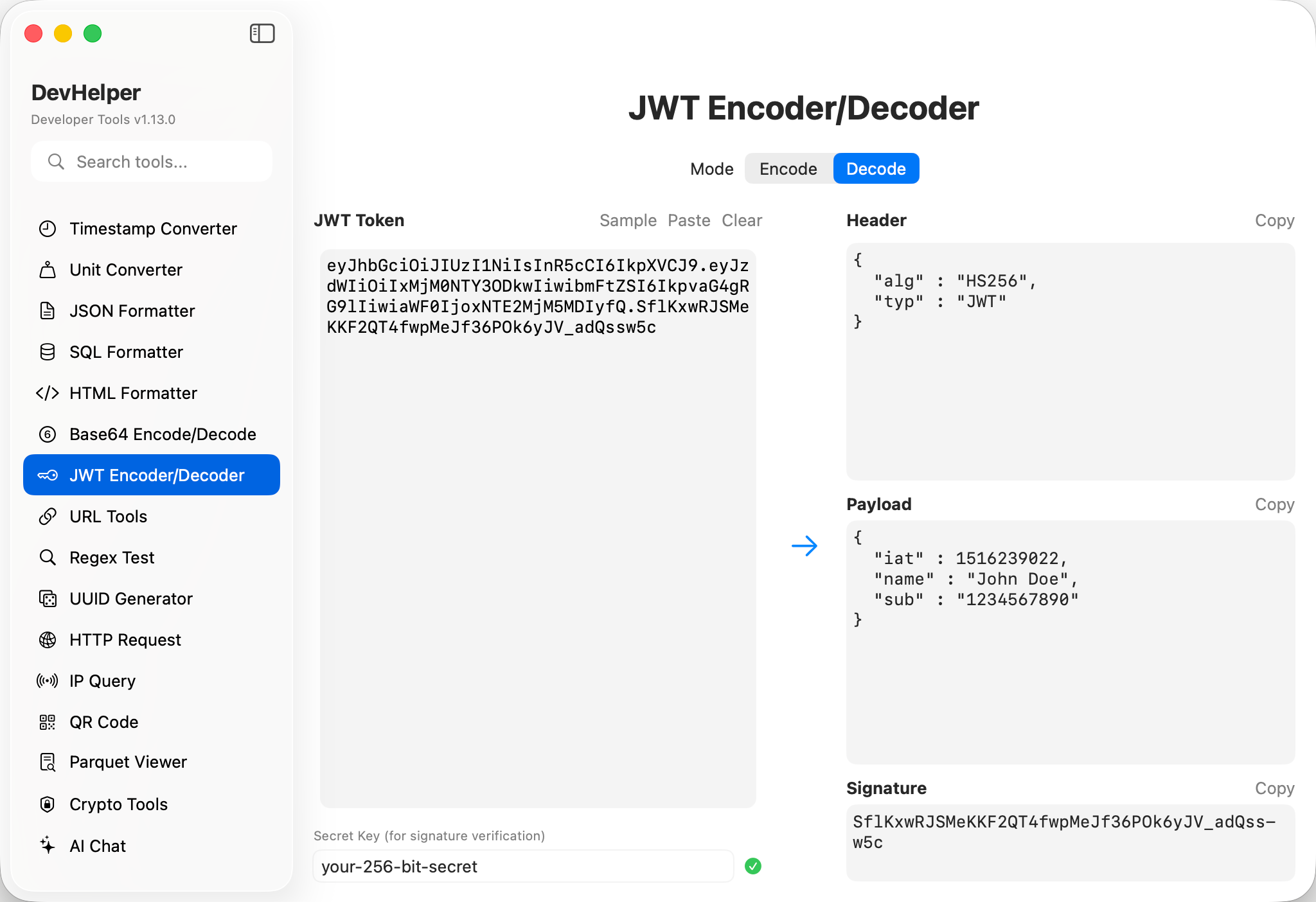JWT Encoder & Decoder Professional JSON Web Token Tools
Complete JSON Web Token toolkit with advanced security features. Create, decode, and validate JWTs using HMAC (HS256, HS384, HS512) and RSA (RS256, RS384, RS512) algorithms. Built with CryptoKit and Security framework integration for enterprise-grade token management and authentication workflows.
